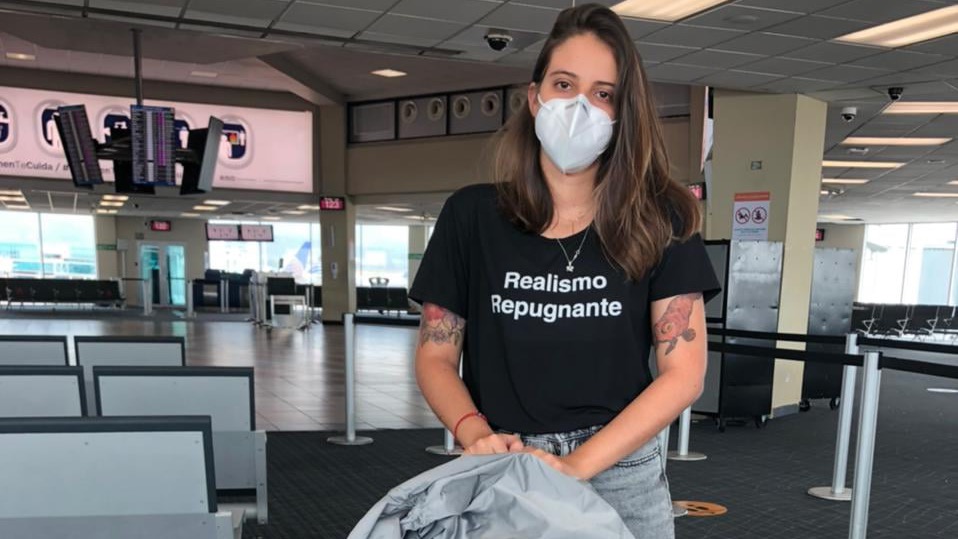The expulsion of the Cuban Karla Pérez González has turned attention once again to what is a recurrent human rights violation committed by the Cuban State, and, as such, one we will always have to talk about: the expulsion of Higher Education students, in retaliation for any form of political dissent.
Karla, it should be noted, before being an exile, was ousted her Journalism studies at the Universidad de Villa Clara for belonging to the Somos Más movement.
Moreover, the case of José Carlos Santos Belaunzaran, disqualified from his medical studies in 2020 over a political argument with the director of a company in the Mariel Special Development Zone, reveals that in Cuba it is not even necessary to declare oneself a member of an opposition movement to be barred. It is enough for you to think "differently from the Revolution," as José Carlos was informed when they expelled him. Endorsing a multiparty system and the Varela Project suffices to get you expelled, as happened to Néstor Pérez González in 2009, then a second-year law student.
Even animal rights supporter Javier Larrea —who was a member of the Union of Young Communists— was tossed out for sharing politically incorrect points of view, like Karla Pérez, and for being ahead of the country's leadership in his defense of animal rights. In his case he was barred for three years, but this penalty has yet to be applied. Rather, it hangs over his head like a Sword of Damocles.
These are just a few stories demonstrating that Cuba's universities "are for revolutionaries" - a slogan that current President Miguel Díaz-Canel, when he was Minister of Higher Education, in 2009, said would be patented.
Hence, it is more serious to disagree with the "revolutionary process" than to commit a forced-entry burglary, for example.
The behaviors that led to the expulsion of Karla, Juan Carlos, Néstor and other Cuban students are classified as "Very Serious" offenses in the Disciplinary Regulations for Cuban University Students, approved via Resolution No. 240/07.
According to this document, indiscipline is categorized into Very Serious, Serious and Less Serious offenses. The first section includes "maintaining an attitude or committing an act manifestly contrary to our revolutionary process." This offense is considered as severe, for example, as "committing educational fraud" or "acquiring, by any means, the ... contents of the different forms of evaluation in force, before they are administered".
At a lower level are those considered "Serious" violations, which include, for example: "committing, at or outside the study center, an act that may constitute forced-entry burglary."
In this regard, considered "Less Serious," for example, is "committing petty theft at or outside the study center."
A "very serious" offense is punishable by expulsion from Higher Education, indefinite suspension, or suspension from three to five years. For "Serious" infractions the punishment can be suspension for up to three years of Higher Education, or the loss of scholarship rights for one to two years.
The strongest sanction for a "Less Serious" offense, such as "petty theft", is suspension for one or two years from Higher Education, although one may get off with a public reprimand, or have to apologize to the person affected.
In other words, even if you are honest, if you protest, you will be expelled. In contrast, if your behavior does not question the "revolutionary process," the fact that you are a thief is not considered very serious.
He who pays makes the rules?
According to the logic that education in Cuba is free, and that it is only thanks to the generosity of the State that Cubans can study for university degrees that in other countries would leave them in debt for life, it has a right to dictate these kinds of rules for universities. If you pay, you have the right to set the rules.
But with what money does the State pay for Cubans' education? With that of the Cubans themselves. In Cuba, Education is public, not free. The current Constitution even recognizes this in its Article 31: "remuneration for work is complemented by the equitable and free provisioning of universal social services and other benefits."
We know that these supposedly universal social services are Health and Education. But if one can be expelled from college for dissenting, Education is not only not free, it is not universal either.
Fidel Castro did not implement Public Education in Cuba. Rather, what he did was eliminate private education, with the argument that only wealthy students had access to it. But the fact that there is only State education in the country does not mean that all citizens enjoy this right. What it guarantees is that, if you are expelled from the university for your political ideas, you will have no other options to continue studying in your own country, despite the fact that the State upholds the right to Education as one of the greatest achievements of the Revolution.
Finally, if you are fortunate enough to land a scholarship abroad, you will have to leave Cuba to continue your studies. And, if after completing them you return to the country where you were born, where the State violates your right to education, it may banish you.
